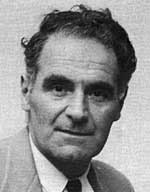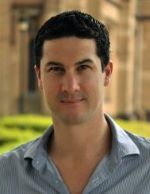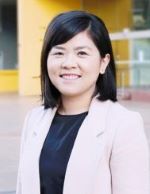Leading chemistry researchers Professor Rich Payne FAA (University of Sydney) and Associate Professor Rona Chandrawati (UNSW Sydney) will explore the significant scientific contributions of Academy Foundation Fellow Professor Raymond Le Fèvre FAA FRS, how the discipline of chemistry has developed, and how their fields of chemistry are impacting our lives today.
In the words of Sir Mark Oliphant, Inaugural President of the Australian Academy of Science, “Raymond was one of the earliest, and most valuable fellows of the Australian Academy of Science. He played a significant part in getting the young Academy off the ground, and in making it respectable, for his standards were high and his knowledge of procedures profound.
“Raymond’s attitude towards science, and its responsibilities, as well as its benefits, for mankind generally, reflected his caring personality and I learnt much in discussion of such questions with him.”
Date: Tuesday 13 August 2024
Time: 5.30pm–6.00pm for refreshments, 6.00pm–7.00pm AEST for talks
Venue: The Shine Dome Canberra, and online livestream
Cost: $17 to attend in person, free to watch online

Professor Raymond Le Fèvre made significant contributions to the field of chemistry, particularly in physical chemistry. His work in physical chemistry has had a lasting impact on the field, especially in our understanding of molecular properties, spectroscopy, and the behaviour of organic compounds. His research has provided valuable insights that continue to influence contemporary chemical science.
Australian Academy of Science biographical memoir
Australian Academy of Science Le Fèvre Medal

Professor Rich Payne is an international leader in the fields of organic chemistry and chemical biology. He is recognised for pioneering a number of technologies for accessing precisely modified peptides and proteins for applications in biology and medicine. His lab is also recognised for the development of modified peptide drug leads for a range of diseases, such as anti-inflammatories, anti-thrombotics and anti-infectives (including for COVID-19). The impact of his research has led to the award of more than 20 prestigious prizes, including the Malcolm McIntosh Prime Minister’s Prize, and the AJ Birch and HG Smith Medals from the Royal Australian Chemical Institute.
Rich was elected a Fellow of the Australian Academy of Science in 2023.

Associate Professor Rona Chandrawati is internationally recognised as an emerging leader in the fields of nano sensors and nanoparticle-based drug delivery. She has achieved world-class research results in the synthesis and development of colourimetric nano sensors and nanozymes for nitric oxide delivery. As the country’s leading researcher in colourimetric polymer sensor technology, her patent-pending nano sensors have enabled the detection of target analytes without the need for specialised equipment. These have been used to monitor food spoilage and contamination, contributing to reducing the nation’s $10 billion worth of edible food waste each year. Furthermore, her synthesis of nanoparticles and nanozymes for nitric oxide delivery have significant therapeutic implications, particularly for the treatment of glaucoma, a condition affecting one in 10 Australians.
Rona was awarded the Academy’s Le Fèvre Medal in 2023.
The Australian Academy of Science’s public speaker series in 2024, our 70th anniversary year, will look at our history and into our future.
In each instalment, we will follow the story of one scientific discipline, with an Academy Fellow and an early-career researcher as our expert guides.
Across geology, virology, astronomy and more, we will trace our science history from landmark discoveries to the present cutting edge of Australian science.
Along the way, we will get to know the Academy’s iconic earliest Fellows who shaped Australian science: from Mark Oliphant to Frank Fenner to Dorothy Hill. We will experience the challenges and curly conundrums they grappled with, celebrate their triumphs and breakthroughs, and look ahead to today’s emerging generation of top minds following in their footsteps.
More information about the whole series is available on the series webpage.
events@science.org.au
events@science.org.au
© 2025 Australian Academy of Science